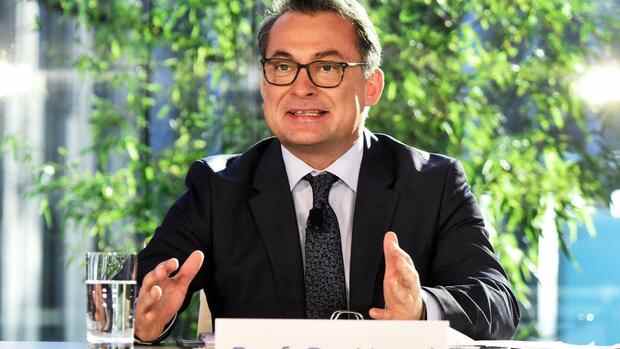Because the world last experienced a pandemic like Corona a good 100 years ago with the so-called Spanish flu – the economic consequences are correspondingly difficult to assess. Several challenges that are closely related to one another are waiting for Nagel.
At 5.2 percent, inflation in Germany has reached a level that far exceeds the target of two percent set by most central banks worldwide. It is also higher than the EU average at just under five percent. This is not only a challenge for the monetary policy decision-makers, but also demands a lot from the Bundesbank’s research department.
At the moment, the question remains whether the return to a time of low inflation, low growth rates and low interest rates, as used to be the case before Corona, will only be delayed. Or whether a new era is actually dawning. Depending on whether a “great acceleration” is pending, as the US bank JP Morgan sees it cracking worldwide, monetary politicians can allow themselves more or less patience with rising prices. At the same time, the forecasts made by monetary politicians are often wrong anyway and are now becoming even more difficult. This is where the Bundesbank has to make its contribution.
Top jobs of the day
Find the best jobs now and
be notified by email.
2. Positioning in the ECB
As head of the Bundesbank, Nagel is also a member of the Council of the European Central Bank (ECB), which makes monetary policy decisions. There are two key questions where he is likely to get into controversy with other members of the Council. First of all, there is the question of how much inflation the ECB should risk. And then about how closely it is getting closer to public finance with its monetary policy instruments. The second point was particularly close to Weidmann’s heart until his last ECB meeting in December.
Even the purchase of government bonds can be interpreted as indirect government financing. Officially, however, the ECB wants to lower long-term interest rates and thus stimulate the economy and thus also prevent the price trend from slipping, as it sometimes seemed to threaten before Corona.
In addition, during the corona crisis, the ECB has given itself the license to buy the bonds of individual countries in a targeted manner in order to prevent their yields from rising too high and overburdening the respective governments’ debt servicing. It has made relatively little use of this flexibility, but has retained it, even if somewhat weakened, for the period after Corona.
This raises the question of how strictly regulatory Nagel wants to position itself. If he is too strict, he is likely to isolate himself in the Governing Council and thus lose influence. If he adapts too much to the majority line, he de facto has no influence. JP Morgan believes that Nagel will appear a little softer than Weidmann, but still be a “falcon”, that is, a supporter of tougher monetary policy. But bringing that together is exactly the challenge.
3. Explain ECB policies
Ideally, monetary policymakers should be tough in internal discussions, but appear fairly closed to the outside world and explain ECB decisions. In Germany, the Bundesbank would be responsible for this. In fact, the German ECB director Isabel Schnabel has recently taken on this role. It was also easier for her than for Weidmann because she agrees more with the majority line. In the long run, however, this is also associated with a loss of importance for the Bundesbank. Nagel has to find his own way here.
4. Maintain political independence
In Germany there is great concern that the ECB is becoming too dependent on heavily indebted countries that need low interest rates. Frederik Ducrozet, ECB expert at the Swiss bank Pictet, has already warned on Twitter that Nagel must also remain independent of German politicians who like to jump on the inflation issue, especially since they do not have to answer for it themselves.
In addition, the financial sector likes to comment on the ECB’s monetary policy and regularly criticizes interest rates that are too low, not completely altruistically, which could create additional pressure.
5. Modernize the Bundesbank
It is precisely this challenge that should not be underestimated, and Nagel should be helped by his previous tenure as a member of the Bundesbank’s board of directors. With over 10,000 employees, the bank is one of the largest central banks in the world and at the same time a heavy weight German authority.
The modernization already starts with the property: The campus is to be redesigned, but this will take a long time and become expensive. The Bundesbank is also a member of numerous future-oriented research projects, for example on the subject of an electronic version of the euro. In her own laboratory, she is also researching new ways of evaluating data faster and more automatically. The new president has to push all of this forward.
More: How the candidate’s freestyle went
